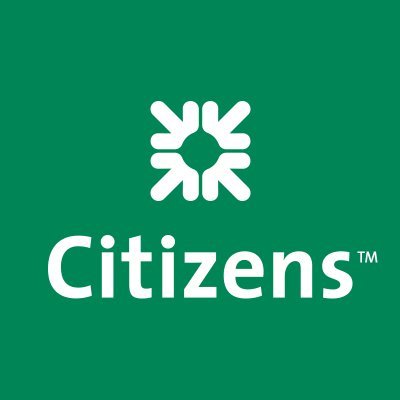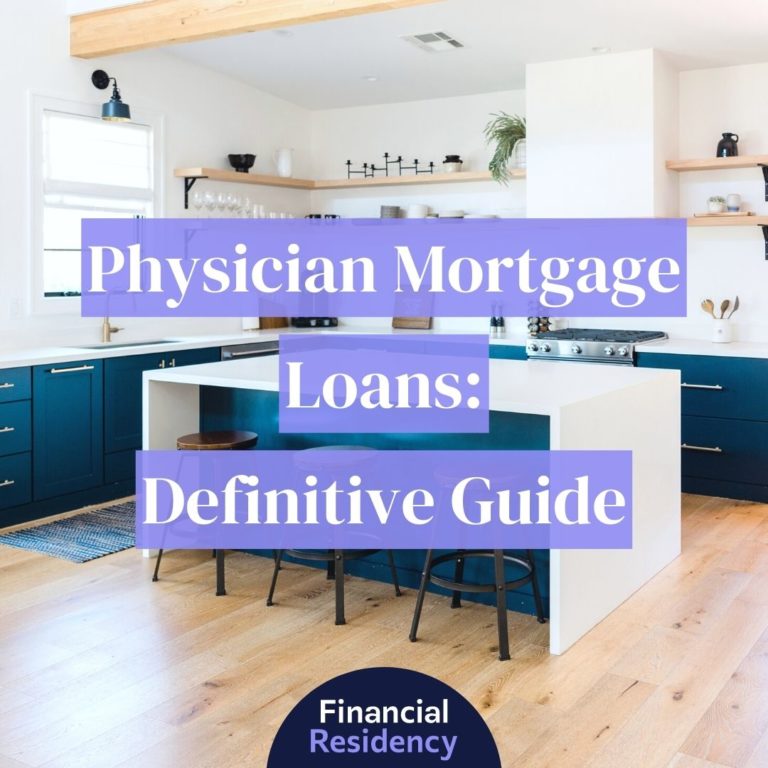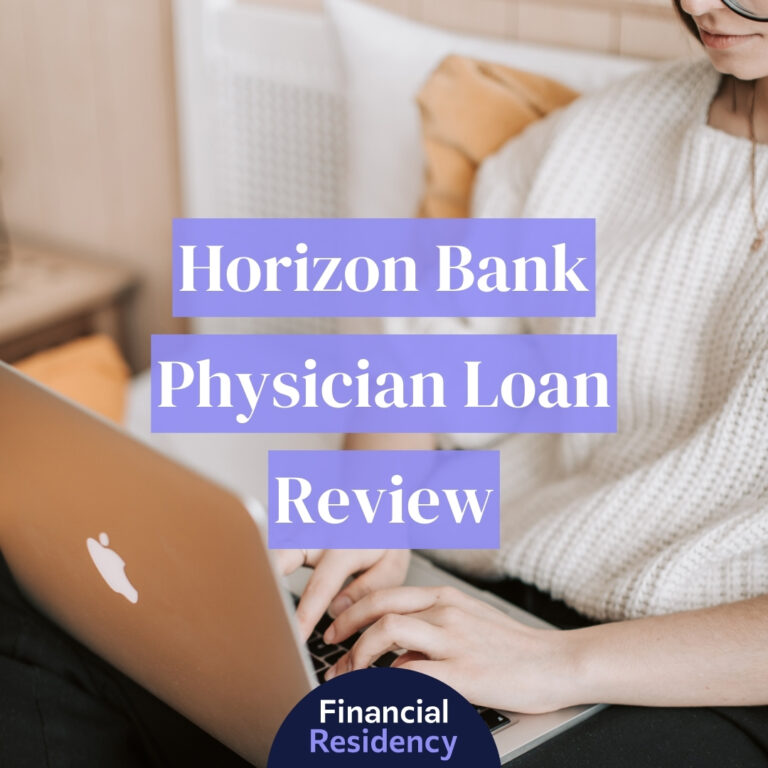Citizens Bank is one of the country’s oldest banks. Today, they have $222.3 billion in assets and offer many banking services. They are headquartered in Providence, Rhode Island, with 1,100 branches across 14 states.
- BBB Score: B
- CEO: Bruce Van Saun
- Phone number: 800-234-6002
- Services offered: Personal, business and corporate banking
Citizens Bank Physician Loan: Fast Facts
Citizens Bank offers a flexible physician loan program. Here are some quick facts to get you started.
- Financing options: 5% down up to $600,000 for residents or $850,000 for physicians, and 11% down on up to $1 million (physicians only)
- Qualifying degrees: MD, DO, DDS, DMD
- Private Mortgage Insurance: Not required
- Maximum loan amount: $1 million
Citizens Bank Physician Loan: Qualifications
Like most lenders, Citizens Bank has specific requirements to qualify for the physician mortgage, including the following.
- Down payment: 5% to 11%
- Debt-to-income ratio: Student debt deferred for 12 months is excluded
- Position: Residents and physicians
- Property type: Primary residence, single-family, PUD, or condo
Discover The Best Lenders Answer just a few questions about your career, where you're buying, and how much you want to borrow. Our service will then show you the exact programs you're eligible for from vetted physician loan specialists who will guide you through every step of the process – obligation-free!
How to Apply
Applying for a Citizens Bank physician mortgage requires working with a loan officer. Before contacting them, consider applying these tips.
1. Get Pre-Qualified
Before looking at homes, it’s a good idea to determine how much you qualify for from Citizens Bank or any physician loan lender.
Talking with a loan officer about your current or future income, assets, down payment capabilities, and credit can help determine if you meet the Citizens Bank physician loan requirements and how much you can afford.
Seeing the payment and terms up close can help you decide how much you want to borrow. Citizens Bank keeps the loan amount requirements low, which can be good to help you avoid getting in over your head.
A pre-qualification from a Citizens Bank loan officer isn’t a guarantee of approval. It gives you an idea of where you stand and allows you to make decisions.
2. Get Pre-Approved
You must get pre-approved if you decide to move forward with the Citizens Bank physician mortgage. This is a more formal process than pre-qualifying.
First, you’ll complete a loan application with your personal and financial information. You must also provide the necessary documents to prove you can afford the loan. This may include some or all of the following:
- Income documentation: You must prove you can afford the loan. If you’re already working as a doctor, you must provide paystubs and W-2s from your employment. If you’ve just started, you can sometimes provide your employment contract.
- Bank statements: Since Citizens Bank requires a down payment from all borrowers, you must prove you have the assets. This includes bank or investment statements from the last two months.
- Purchase contract: If you’ve already found a house, you can provide the lender with your signed sales contract to move the process along faster. If not, you can provide it when you find a home and the seller accepts your offer.
Citizens Bank will provide a pre-approval letter if you qualify for the loan. This letter will include the necessary information to share with sellers to show you are a serious buyer. This includes:
- The amount you can borrow
- Rate and terms
- Conditions you must satisfy, such as a sales contract
A pre-approval letter is good for 90 days, but you can request an extension if you don’t find a home within that timeframe. The underwriter may require updated documentation, such as updated paystubs or bank statements.
3. Satisfy the Conditions and Find a Home
If you have not found a home, you should search for one after getting pre-approved. During this time, you can also focus on satisfying the underwriter’s conditions on the pre-approval.
After finding a home and signing the sales contract, Citizens Bank will order an appraisal and title search to ensure the property meets their requirements.
4. Close the Loan
After clearing the conditions, you’ll be ready to close the loan. This is when Citizens Bank funds your loan, paying the seller and other interested parties. You will also bring your down payment and closing cost funds to the table.
You’ll sign the mortgage documentation at the closing, which makes you responsible for the new mortgage payment.
Alternatives
Citizens Bank is one of the many banks that offer physician mortgages. Here are some alternatives to consider.
- BMO Bank: BMO Bank, like Citizens Bank, doesn’t have a no down payment option. Depending on how much you borrow, you must put down 5% to 10%. They allow loans up to $2 million; if you set up the loan on autopay, you can get a 0.125% rate discount.
- Huntington Bank: Huntington Bank offers a physician mortgage for doctors and residents. They have up to 100% financing options and don’t require PMI or have a prepayment penalty. They lend up to $2 million and have fixed and variable rate options.
- Fulton Bank: Fulton Bank offers 100% financing up to $1.5 million and requires up to 10% down payments on loans up to $3 million. They don’t require PMI and allow sellers to help with closing costs up to 6% of the sales price. Like Citizens Bank, they don’t include student loans deferred for 12 months or longer.
- Fifth Third Bank: Fifth Third Bank offers physician loans to new and established doctors. They have no and low down payment options and offer fixed and adjustable rate loans. Unlike some lenders, they also offer the option to refinance a physician loan.
Pros and Cons
Understanding the Citizens Bank physician mortgage pros and cons is important to help you decide if it’s right for you.
Pros
- No PMI
- Excludes some student loan debt
- Available on a large variety of properties
Cons
- No option for no down payment
- Low loan limits for residents
Frequently Asked Questions
The Citizens Bank physician mortgage program is great for getting your needed funds. Here are some questions people have about them.
Does Citizens Bank have a prepayment penalty?
No, Citizens Bank doesn’t charge a prepayment penalty like most lenders. This allows you to pay the loan off in full whenever you want. If you don’t like debt hanging over your head, this is a nice option.
Are Citizen Bank interest rates lower?
Citizens Bank physician mortgage interest rates are similar to those of other physician mortgage loans but higher than traditional loans. This is to offset the risk lenders take lending a large loan amount to doctors with little to no money down on it.
How much can I borrow with a Citizens Bank physician loan?
Citizens Bank allows loans up to $1 million, which is lower than many banks, but this keeps your debt in line with what you can afford. How much you qualify to borrow depends on your income, assets, and current debt load.
What credit score does Citizens Bank require for a physician mortgage?
Citizens Bank requires a 700 credit score to qualify for a physician mortgage like most lenders. Citizens Bank wants to ensure you can afford it because it’s such a large loan with a high payment.
What are the benefits of a Citizens Bank physician mortgage?
A Citizens Bank mortgage can help you secure financing for a house earlier than you might qualify for traditional financing. Since doctors often have a large amount of student loan debt, it often makes it difficult to qualify for financing without a large down payment, but a physician mortgage at Citizen Bank allows it with 5% to 11% down versus 20% to 30% traditional loans would require.





